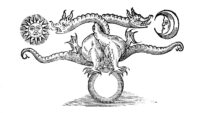As a bull facing certain death stubbornly raises its head one last time, kicks up dust and charges the Matador, so my Brooklyn-born father faced his own end; ninety-one years old, and he truly thought he’d never die. “Why is this happening to me?” he asked me while hospitalized, his heart and kidneys failing. “What can I tell you, Dad?” I answered, “These things happen when you get to ninety-one.” “Yeah,” he’d said, “But why me?”
After a long week in the hospital there was no real improvement and his doctor conceded, Norman was dying. I decided to bring him home. “We’re getting out of here,” I told him, “You’re going to stay at my house for a while.” “Great,” he said. “You got my wallet?”
By this time he was sleeping 20 or more hours a day, drifting in and out of delirium. I’d engaged Hospice by the Bay and our guest bedroom was outfitted with a hospital bed, commode, walker and oxygen. At the hospital, I wrapped a bathrobe around him and rolled him in a wheelchair to my car. “Are we goin’ to Philadelphia?” he asked. “No, Dad,” I replied, “Philadelphia’s 2,500 miles away; we’re going to my house.” “Good,” he said, “I don’t like Philadelphia.”
My wife stayed with him while I drove to the airport and picked up my sister. When we arrived home he was awake. He welcomed her with oohs, aahs, and kisses and settled back to sleep. When he awoke again he was very anxious. “The car is waiting,” he urged, “I gotta go!” “No work today Dad,” we soothed him, “you’ve got to rest for a few more days.” “Okay, tell the doorman I’m delaying the trip for 24 hours.” His eyes closed once again.
A few hours later he tried getting out of bed. “I need to put my shoes on.” He asked, “Where’s my wallet and my keys?” “I’ve go them right here, Dad,” I told him, “but you need to rest, so please stay in bed.” Awake again in a few hours, I heard the covers rustle. “The movie starts soon, we need to go!” he said in a panic, pulling himself up. “The movie’s later,” we told him, “It’s cold, rainy and too early. We’re all going to get some more sleep.” “OK,” he relaxed into the pillow, “You got a deal.” This pattern went on for days.
The hospice nurses remarked on how strong-willed he was; they’d seen this in other men his age. “Was he in WWII?” one nurse asked. “He’s terribly anxious; perhaps more sedation?” she offered, and we agreed. It was hard to see him suffering. Placed on a four-hour schedule instead of six, he finally settled down. “Goodnight, sweetheart,” he cooed.
On day five, his forehead and eyebrows finally softened and his breathing became smoother. That evening, my sister and I sat on either side of the bed and held his hands. “I love you both so much,” he said softly, and closed his eyes. It was his moment of saying goodbye.
At 6:20 the following morning, Norman Barnett, the Bull of Brooklyn, took his last breath. I lit some incense, began chanting the Supreme Confession Tantra and just then our daughter called; she was in labor with our grandson. Tears of grief mixed with tears of joy. And so life goes.





Be First to Comment